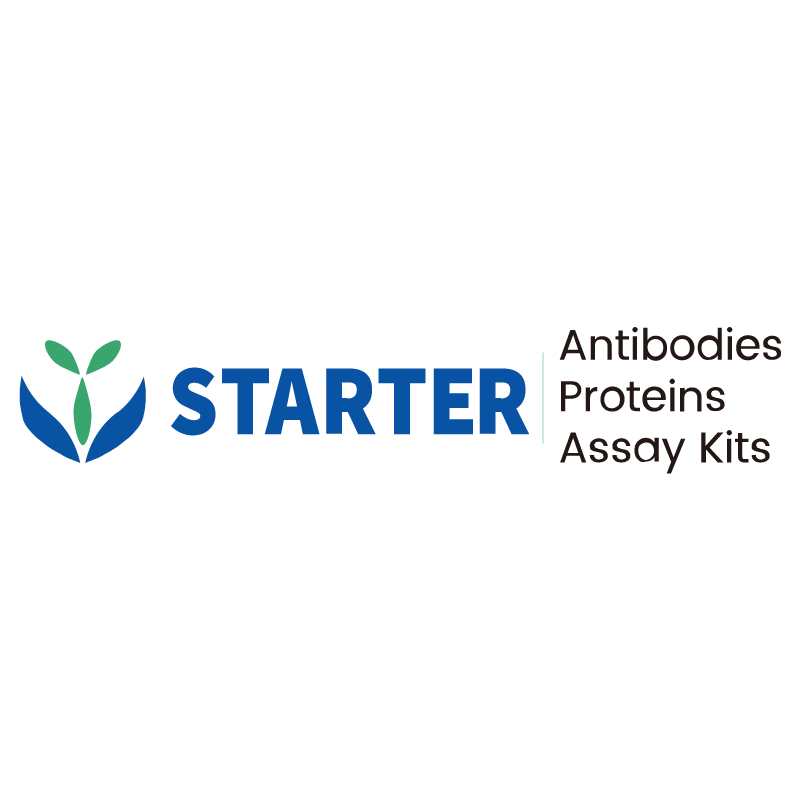WB result of MMP2 Recombinant Rabbit mAb
Primary antibody: MMP2 Recombinant Rabbit mAb at 1/1000 dilution
Lane 1: HCT 116 whole cell lysate 20 µg
Lane 2: U-87 MG whole cell lysate 20 µg
Lane 3: A375 whole cell lysate 20 µg
Negative control: HCT 116 whole cell lysate
Secondary antibody: Goat Anti-Rabbit IgG, (H+L), HRP conjugated at 1/10000 dilution Predicted MW: 74 kDa
Observed MW: 70 kDa
Product Details
Product Details
Product Specification
| Host | Rabbit |
| Antigen | MMP2 |
| Synonyms | 72 kDa type IV collagenase; 72 kDa gelatinase; Gelatinase A; Matrix metalloproteinase-2 (MMP-2); TBE-1; CLG4A |
| Immunogen | Recombinant Protein |
| Location | Cytoplasm, Nucleus, Secreted |
| Accession | P08253 |
| Clone Number | S-1804-55 |
| Antibody Type | Recombinant mAb |
| Isotype | IgG |
| Application | WB, IHC-P |
| Reactivity | Hu, Ms |
| Positive Sample | U-87 MG, A375, NIH/3T3 |
| Purification | Protein A |
| Concentration | 0.5 mg/ml |
| Conjugation | Unconjugated |
| Physical Appearance | Liquid |
| Storage Buffer | PBS, 40% Glycerol, 0.05% BSA, 0.03% Proclin 300 |
| Stability & Storage | 12 months from date of receipt / reconstitution, -20°C as supplied |
Dilution
| application | dilution | species |
| WB | 1:1000 | Hu, Ms |
| IHC-P | 1:200 | Hu |
Background
MMP2, also known as gelatinase A or 72 kDa type IV collagenase, is a matrix metalloproteinase that plays a crucial role in the degradation of the extracellular matrix (ECM), particularly type IV collagen, which is a major component of basement membranes. It is involved in multiple physiological processes such as angiogenesis, tissue remodeling, and repair. MMP2 also contributes to the breakdown of non-helical collagen and other proteins like fibronectin, laminin, natural insoluble elastin, aggrecan, and vitronectin. The enzyme is expressed by various cell types, including fibroblasts, keratinocytes, endothelial cells, chondrocytes, and monocytes. Furthermore, MMP2 has been implicated in the pathogenesis of several diseases, including atherosclerosis and skeletal disorders, and it plays a role in the angiogenesis associated with various diseases by releasing angiogenic factors and assisting in cell migration and adhesion. Understanding the pathological and physiological aspects of MMP2 is essential for developing therapeutic interventions for diseases where it plays a significant role.
Picture
Picture
Western Blot
WB result of MMP2 Recombinant Rabbit mAb
Primary antibody: MMP2 Recombinant Rabbit mAb at 1/1000 dilution
Lane 1: NIH/3T3 whole cell lysate 20 µg
Secondary antibody: Goat Anti-Rabbit IgG, (H+L), HRP conjugated at 1/10000 dilution Predicted MW: 74 kDa
Observed MW: 70 kDa
Immunohistochemistry
IHC shows positive staining in paraffin-embedded human breast cancer. Anti-MMP2 antibody was used at 1/200 dilution, followed by a HRP Polymer for Mouse & Rabbit IgG (ready to use). Counterstained with hematoxylin. Heat mediated antigen retrieval with Tris/EDTA buffer pH9.0 was performed before commencing with IHC staining protocol.
IHC shows positive staining in paraffin-embedded human pancreatic cancer. Anti-MMP2 antibody was used at 1/200 dilution, followed by a HRP Polymer for Mouse & Rabbit IgG (ready to use). Counterstained with hematoxylin. Heat mediated antigen retrieval with Tris/EDTA buffer pH9.0 was performed before commencing with IHC staining protocol.
IHC shows positive staining in paraffin-embedded human bladder cancer. Anti-MMP2 antibody was used at 1/200 dilution, followed by a HRP Polymer for Mouse & Rabbit IgG (ready to use). Counterstained with hematoxylin. Heat mediated antigen retrieval with Tris/EDTA buffer pH9.0 was performed before commencing with IHC staining protocol.


